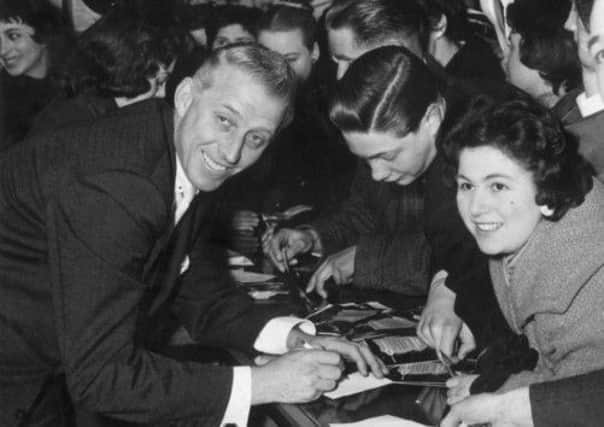Bringing back the original wall of sound


Stand by for screaming trumpets and what was described as a “wall of sound” way before Phil Spector annexed the term. Jazz fans tended to love or loathe Kenton’s constantly questing music, says the SNJO’s director, saxophonist Tommy Smith. “A lot of people didn’t like him because they thought that big bands should sound like Count Basie and Duke Ellington. When he started to use terms like ‘contemporary’ and ‘progressive’, to try and disassociate himself from the more traditional big bands, he lost a lot of people, but also gained a lot who were into the new kind of music.”
Kenton’s band was bigger and louder, says Smith, adding that for the tour, the SNJO will take on three musicians more than its Ellington configuration. “Kenton also had a lot of ‘screamers’ in his band,” adds Smith, pointing to high-note trumpeters such as Maynard Ferguson and Al Porcino.
Advertisement
Hide AdTaking on board Latin-American and European musical influences, Kenton’s was indeed a more progressive, bop-influenced sound, though he could really swing when he wanted to. The Latin influences permeated perhaps the best-known number from a man not given to responding to commercial imperatives, The Peanut Vendor, which the SNJO will duly perform, along with other numbers such as Intermission Riff, Fascinating Rhythm and Love for Sale. “You wouldn’t think of Love for Sale as a Latin number, but it certainly is in Kenton’s band.”
The orchestra played a Kenton tribute back in 2004. This time around it will cover more numbers – “more music and less elongated improvisation,” as Smith puts it – and will also feature some arrangements not immediately associated with the pianist and bandleader, who died in 1979, including a version of Gershwin’s Rhapsody in Blue as well as String of Pearls, the latter rampaging along at a decidedly different pelt from the smoochy Glenn Miller standard.
Among various notable musicians who spent time in the Kenton ranks during the band’s later years were drummer Peter Erskine and trumpeter Tim Hagans. Both have collaborated with the SNJO so, says Smith, “we’ve got a tiny bit of a connection”.
Between working on the Kenton arrangements, his teaching duties as leader of the jazz course at the Royal Conservatoire of Scotland, and touring commitments both with his own powerful Karma quartet and in potent trio with Norwegian bassist Arild Andersen and Italian drummer Paolo Vinaccia, Smith hasn’t been devoting as much time as he’d like to preparing new material for a second Karma recording, the band’s debut album having won much acclaim two years ago.
Oddly enough, though, with his Karma outfit in mind, he composed a tune a year ago called Orissa, named after the Indian state – “I wrote it because they do a dance there called the Karma dance.” And a few weeks ago, he found himself touring in that self-same Orissa with Andersen and Vinaccia. The trio has a much anticipated new album due out on ECM in November, but you’ll have to wait until the next Karma recording to hear Orissa.
In the meantime, there’s a chance to catch another far-travelling saxophonist, tonight, when the award-winning Australian player Jamie Oehlers who has played with everyone from Charlie Haden to the Brodsky Quartet, brings his quartet to Edinburgh’s Jazz Bar, featuring Israeli piano prodigy Tal Cohen and local stalwarts Chris Wallace on drums and Mario Caribe on bass.
Advertisement
Hide Ad• The Scottish National Jazz Orchestra plays The Incredible Sound of Stan Kenton at the Queen’s Hall, Edinburgh, on 25 April; the Royal Conservatoire, Glasgow, on 27 April; and the Albert Halls, Stirling, on 28 April. For further details see www.snjo.co.uk